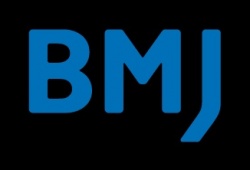Research
Deaths higher for heart attack patients at night and weekends
Off-hour presentation and outcomes in patients with acute myocardial infarction: systematic review and meta-analysis

Mortality is higher, and emergency treatment takes longer, for heart attack patients who arrive at hospital during the night or at weekends compared with regular hours, finds a study published on bmj.com today. The results suggest that presenting outside regular hours may lead to thousands of extra deaths every year. They also show a longer ‘door to balloon time’ - an emergency procedure to inflate the coronary artery.
Heart attacks remain the leading cause of death worldwide. Every year, around one million people in the United States have a heart attack and 400,000 die from coronary heart disease. Previous studies have suggested that heart attack patients who present to hospital during off-hours (weekends and nights) may have higher mortality compared with regular hours, but no reviews or analyses of the evidence have been done.
So a team of researchers based at the US Mayo Clinic analysed the results of 48 studies involving 1,896,859 patients to assess the effects of off-hour presentation among heart attack patients.The studies were carried out in the US, Canada and Europe – and differences in design and quality were taken into account to minimise bias.
Patients who presented during off-hours had a 5% relative increase in mortality (both in-hospital and 30 days after discharge) than patients who presented during regular hours, resulting in an extra 6,000 deaths every year in the US alone.
For patients diagnosed with a certain type of heart attack (known as ST elevation myocardial infarction or STEMI), the results also show a delay of nearly 15 minutes in door to balloon time for patients presenting during off-hours. This, say the authors, “could increase mortality by as much as 10-15%, assuming linearity between door to balloon time and mortality.”
Although they cannot rule out differences in underlying patient characteristics, the authors say their results suggest that “increased mortality during off-hours is associated with factors that arise after presentation at hospital.” And they call for further studies to explore the variation in the quality of care by time of day, such as number of staff and their level of expertise. In an accompanying editorial, doctors at the University of Toronto argue that, patients presenting during off-hours “experience delays in urgent care and worse outcomes, and the gap seems to be increasing over time.”
They suggest healthcare managers seeking to boost their hospital’s performance for patients with acute myocardial infarction “should focus on improving their off-hour care, with the goal of providing consistently high quality care 24 hours a day and seven days a week.”And they suggest future studies “should try to identify specific deficits in the care pathway during off-hours, allowing differences in outcomes to be linked to differences in processes.”
22.01.2014










